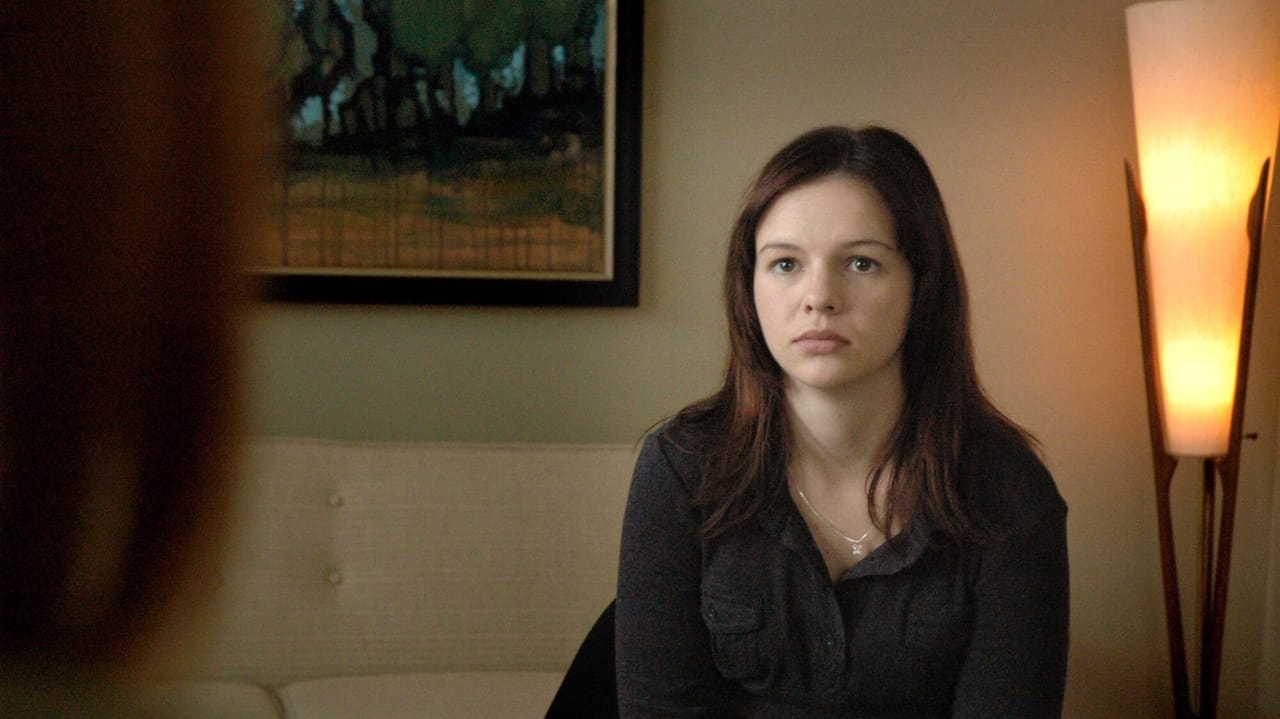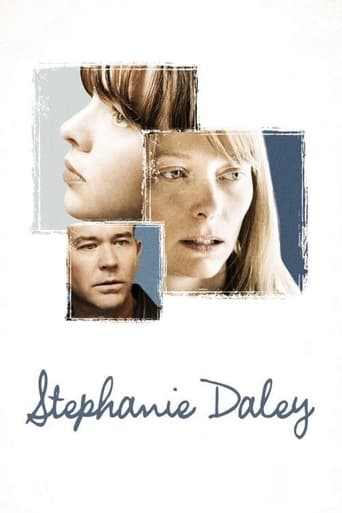

A Major Disappointment
... View MoreIt is both painfully honest and laugh-out-loud funny at the same time.
... View Morewhat a terribly boring film. I'm sorry but this is absolutely not deserving of best picture and will be forgotten quickly. Entertaining and engaging cinema? No. Nothing performances with flat faces and mistaking silence for subtlety.
... View MoreGreat movie. Not sure what people expected but I found it highly entertaining.
... View MoreThis is one of those movies that looks like it was developed from the Sundance workshops... and what do you know? Hallmarks of the category include female chauvinist perspectives, emasculated or violent male characters (if there are any men to speak of), long stagnant takes shot on digital video, and an aggressive tendency toward unresolved endings. This has most of them.And I don't care, because Tilda Swinton is plenty of reason to watch any movie. Even THE BEACH. Okay, I won't go that far. But she is pretty exciting. To paraphrase the old line, I'd pay to watch her go to the bathroom... and, in this movie, I get to. Several times. Be careful what you wish for, I guess. Not that I ever wanted that... alright, enough on this subject.Plus Amber Tamblyn, who far from sucks here, and Melissa Leo, who never gets enough to do in movies - though, Jesus, girl, you are racking up the films lately. I think Leo's made as many films in the last four years as she made her entire previous career - though, again, she usually doesn't get too many lines.Actually, Hilary Brougher raises this picture somewhat above its disadvantages through nuance, innuendo, and lack of blatancy, though this very ambiguity does ultimately queer the ending, as in, I don't really get what's going on with the shrink character when credits roll. Not that I need everything spelled out, but I need to know what language we're speaking. Perhaps Sudden Cutaway to Overexposed Window means something in Girrrlish.Maybe I need to bone up on my Independent Woman Filmmaker symbolism. Or maybe I need to shut up before I get slapped with a Thoughtless Human with Penis label and written into another script where men fail to make the world entirely comfortable for women.
... View MoreThis film was one of the real gems to come out of Sundance, and I was quite surprised to discover that Amber Tamblyn (Stephanie Daley) didn't walk away with the Independent Spirit Award for which she was nominated. I can only imagine that the majority of ISA voters didn't see the film. So far as I can tell, it has been the best reviewed film of 2006 as of the first quarter of the year, and nothing else for which I've seen trailers thus far looks likely to unseat it any time soon. The terms "career building" and "tour de force" are so rabidly overused that they don't do the performances justice in this film -a film that actually deserves such description without sacrificing subtlety. Stephanie Daley should be mandatory viewing for parents and daughters everywhere. It addresses the problems that can arise from the lack of information available to teens. Misconceptions about the "facts of life" due to withholding those facts (from young people) can lead to dire consequences, whether you are a believer of abstinence or a proponent of birth control. Education is the key, and this film presents a very candid, emotional and valid viewpoint that addresses both sides of this hot-topic issue. This film deserves as wide an audience as possible, and support from educators and community leaders will help open a dialogue that benefits all viewpoints, but most importantly benefits our children.
... View MoreI have no idea why this film, or many of the other Sundance films for that matter, are rated so low on IMDb. It's a shame, because this is a remarkable film.Amber Tamblyn gives the best performance of her career and deserves an Oscar for her subtle, eerie picture of teenage confusion, fear and malice. Tilda Swinton is also very good as the detective investigating Daley's case, and both Melissa Leo and Timothy Hutton give solid backup.See this movie - it is a frightening and eye-opening portrait of real life. ****/*****
... View MoreKnowing through logic or knowing through intuition - and if we suppress what's staring us in the face, how can we find the truth? Such are the elements of a good mystery; and in the case of Stephanie Daley they are also the subject matter.Tilda Swinton is a forensic psychologist trying to determine if 16 year old Stephanie Daley (Amber Tamblyn) knew she was pregnant. As the girl has just recovered from a horrific experience - we don't find out till later exactly how very horrific - it seems slightly strange that no-one seems overly concerned about her welfare or why it is so crucial to know if she knew. What is even more strange is that all we know is that she wandered down out of a ski resort leaving a trail of blood. The hospital reports that she has recently given birth, that she was 24 weeks pregnant. Swinton's character also happens to be pregnant - 29 weeks. (The legal age when a fetus is considered viable varies but is generally around 24 weeks).There are snatches of conversation - teeth used to cut the cord - toilet paper embedded in the face. I found myself leaning forward and concentrating, afraid I might miss something, just as one does when listening to a fascinating but quietly spoken person or when eavesdropping.Liddie Crane (Tilda Swinton) is no stranger to pregnancies gone wrong. We see her watching a baby scan, and learn she has conceived only three months after a stillbirth. An intelligent, professional woman, she is coping with her own state of mind - someone tells her she must not pass on her obvious anxiety to the child. She has fine legal training, but looks back to the time of her last pregnancy when she knew - she just 'knew' - that something was wrong. We believe her, but later watch her discomfort as she realises she is asking Stephanie not if, but how she knew, challenging a certainty that she herself would not be able to explain with logic. Stephanie, at sixteen, shows all the psychological characteristics of a developing teenage mind, sometimes confusing what she 'believes' - she has a Christian faith - with what her intuition is telling her.Stephanie Crane is part mystery, part psychological drama and, towards the end, a harrowing thriller of unexpected intensity. Without proselytising for one side or the other, it also puts issues such as sex education and the laws regarding sex and minors into stark perspective. The storyline could be seized on to advocate stronger obedience to religious injunctions (Stephanie thinks that when things go wrong that God is punishing her) or to question the whole basis of sex-education influenced by U.S. religious (Christian) beliefs.At the start of the film, we see an almost colourless landscape - mountains and a few dark trees against limitless snow. As Stephanie comes into view, her clothes and the red marks left from her sluggish feet suggest a possible theme in the use of colour. Most of the times when we catch her subsequently or in flashbacks, she is wearing something red or else the light is strangely subdued. Maybe it could suggest the passion of youth? The novel, Scarlet Letter, is used in Stephanie's class. She concludes, when asked, that is suggests, "it is harder to live a lie than it is to tell the truth and be punished." Modern punishment and retribution echo the novel's storyline in the film's denouement. Colours associated with Liddie, on the other hand, her clothes, her kitchen, bedroom, house and surrounding garden are mostly the greenish palette of nature. Liddie herself usually wears some green or blue, both relaxing, reassuring colours.Strong white is used twice in the film in key scenes: at one point, Stephanie is ascending the stairs into bright light (but when we continue upstairs there is only darkness). The other time is the brilliant whiteness of her church. The two key lovemaking scenes also seem linked by the way the colours are distorted by near darkness. In both cases there is joyous consent, but in each case the woman has very different thoughts about the man involved as subsequent events come to light.In one interesting scene in the schoolroom, the youngsters having learnt about 'making babies' and encouraged to use baby beepers to better understand when a baby needs frequent attention, the teacher turns to the topic of 'not making babies' and invites the class for input. One young man, to the amusement of his classmates, says, 'A condom?' the teacher replies that, although she would like to agree with him, the only official answer the school board will allow her to give is abstinence.Denial is another element of Stephanie Daley. Is she denying the truth to herself? Does Liddie deny her woman's intuition in favour of legal niceties? Stephanie's mother wants all the fuss to be over quickly. Psychologically, it is as if she is denying anything terrible has happened.Tilda Swinton's career, apart from the odd glitch, has shown a remarkable aptitude for including challenging films. This film, like many of her consummate characters, may not receive the immediate recognition it deserves, but that does not detract from it being complex, ingenious and very intelligently woven. Her character, like the brilliant script by director-writer Hilary Brougher, rewards every bit of study and attention you might wish to give it. Unlike the young teenager she is interviewing, Liddie has developed both the objective and intuitive parts of her character to a mature level. When they come into conflict at the end of the film, the interior struggle just for a moment slips out from her professional façade. But of all the images that remain after viewing, it is the solitary anguish of Amber Tamblyn, her own hand over her face to muffle a scream, that will haunt you for days afterwards.
... View More